Lifetime cost of visual aids:
$0*LASIK in Houston, TX
Are you tired of wearing glasses or contact lenses to see the world around you? If you’re a good LASIK candidate, you may be able to say goodbye to using visual aids for good!
With LASIK eye surgery at Diagnostic Eye Center in Houston, you can achieve your personal best vision. We believe in providing you with the most advanced technology and the highest quality of care. We value every patient and provide individualized care from your first LASIK consultation to the very last day of recovery. Achieving visual freedom has never been easier!
Our talented ophthalmologists have decades of experience in performing LASIK in Houston and take the time to ensure all of our patients are informed and enjoy a comfortable visit at Diagnostic Eye Center. We will provide you with a caring and supportive environment for undergoing your refractive procedure.You will find our surgeons and staff to be some of the most helpful and knowledgeable in the field of LASIK. Our doctors have collectively performed over 20,000 refractive procedures. Since LASIK received FDA approval in the late 1990s, our surgeons have performed laser vision correction and LASIK on many physician colleagues and local and national celebrities.
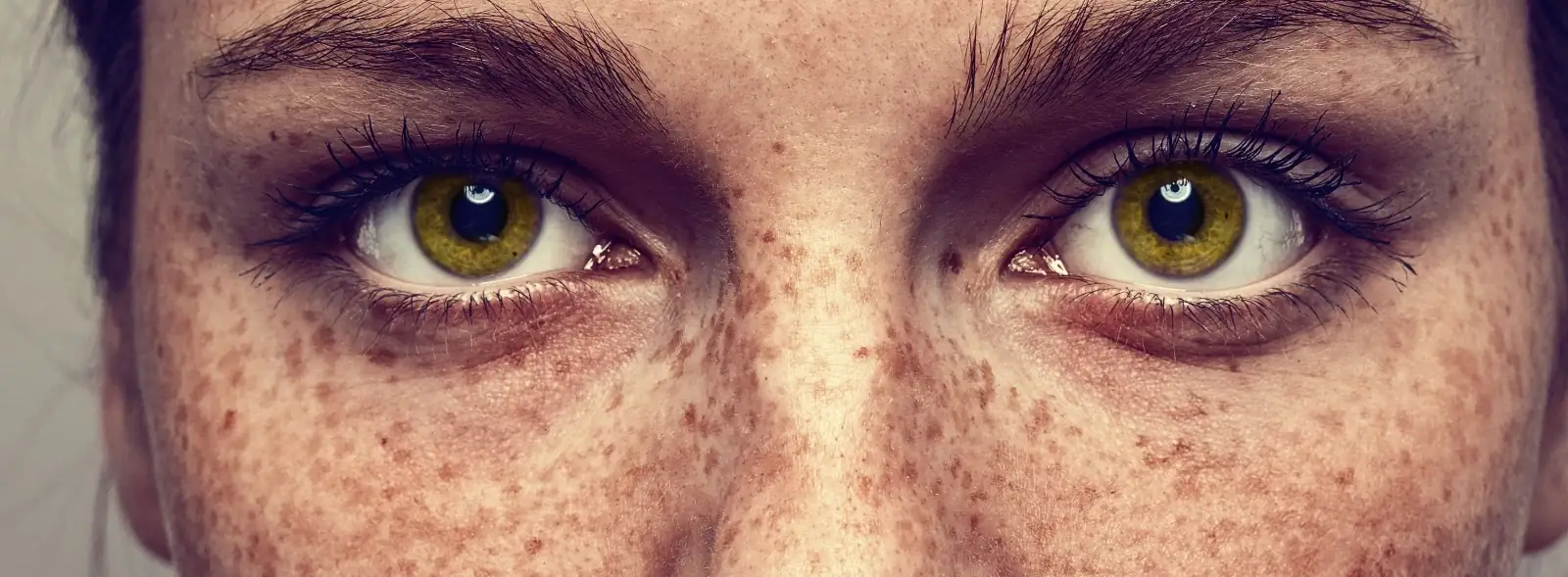
How Does LASIK Work?
LASIK, which stands for laser-assisted in situ keratomileusis, is a permanent vision correction procedure that works by reshaping the cornea. The cornea is a clear layer in the front of the eye. When the shape of the cornea is normal, light rays can properly reach the retina in the back of the eye. When the cornea is irregularly shaped, it causes vision problems called refractive errors. Reshaping the cornea corrects refractive errors like nearsightedness (myopia), farsightedness (hyperopia), and astigmatism.
LASIK laser surgery uses a combination of two lasers: excimer and femtosecond. The femtosecond laser creates a flap in the cornea, while the excimer laser removes a tiny amount of tissue from the cornea and reshapes it. These lasers allow your eye surgeon to accurately reshape the cornea so you can see more clearly without glasses or contact lenses.
Who Is A Good LASIK Candidate?
As great as LASIK is, it’s not right for everyone. This is why you have to have a LASIK consultation before having the procedure.
LASIK is only approved for people within the treatment guidelines. These include up to +6.00 diopters of farsightedness, up to 6 diopters of astigmatism, and up to -12.00 diopters of nearsightedness.
Even if you fall within those parameters, your specific eye measurements may make you a better candidate for an alternative refractive surgery. Your eye doctor will discuss all of your scans and measurements and recommend the best procedure for you.

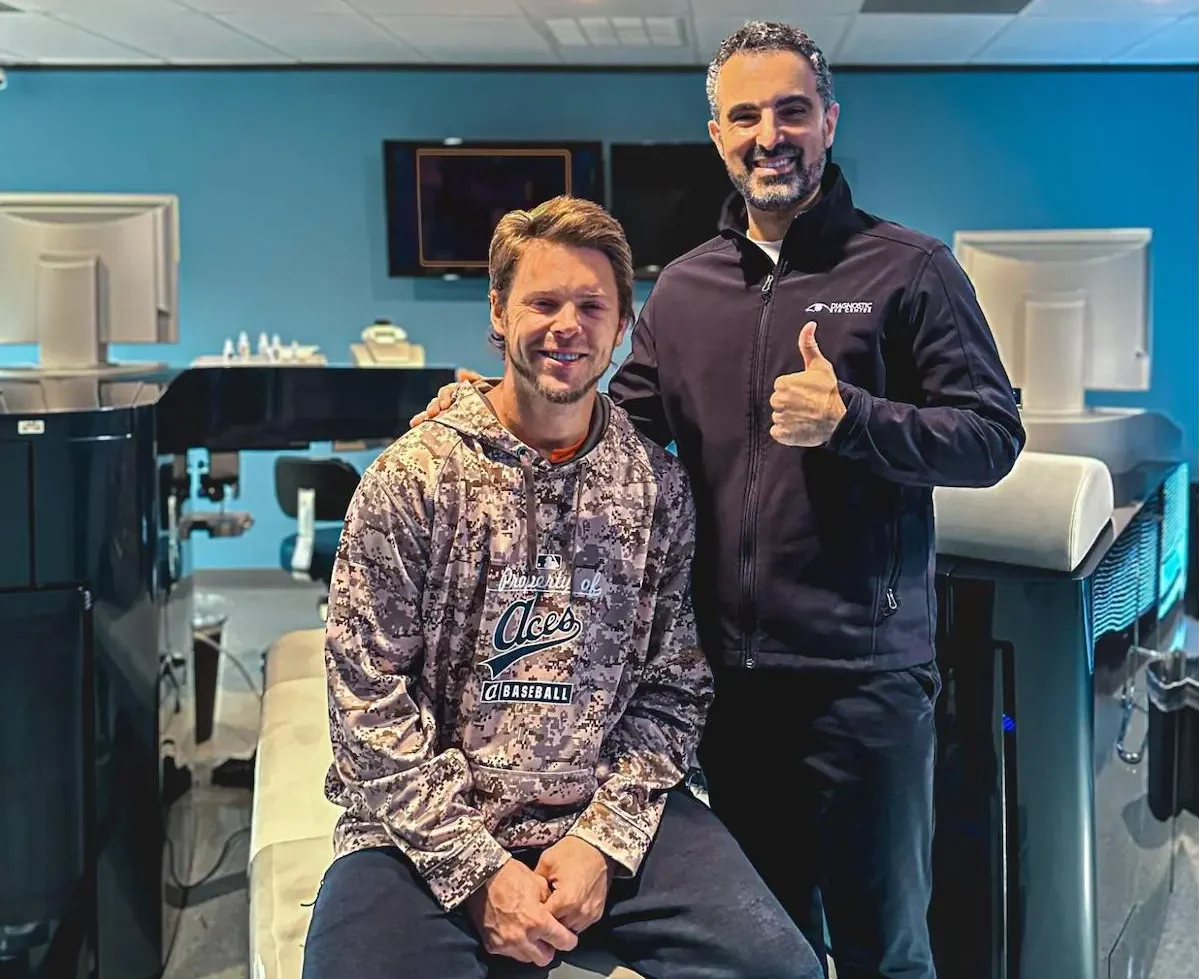
LASIK
Josh Reddick
Houston Astros World Series Champion
“Everybody on the team was welcoming and treated me with kindness. I knew what to expect going in, so it wasn’t much of a surprise. If you’re considering LASIK, don’t wait—get it done ASAP!”
Other factors for an ideal LASIK candidacy include:
- A stable prescription that’s remained unchanged for at least a year
- 18 years of age or older, though most eye surgeons prefer LASIK patients to be in their mid to late twenties
- Healthy eyes without any injuries or conditions like cataracts, glaucoma, or age-related macular degeneration
- Adequate corneal thickness (this will be measured by your eye doctor)
- Not currently pregnant or nursing
- Good general health with no autoimmune conditions that would make it harder to recover after LASIK
These are only some of the factors that your eye doctor will consider for LASIK candidacy. The only way to know for sure if LASIK is the right vision correction procedure for you is to schedule a consultation at Diagnostic Eye Center in Houston, TX!
“I had my LASIK procedure done here and am so happy I chose Diagnostic Eye Center! From the initial appointment to the follow-up meetings, everything was perfect. I drove myself to the follow-up appointment the next day! Friendly staff and they made sure I was comfortable and understood everything. Flawless!”
We know that you are excited for clear vision, but before you have LASIK, we must make sure that laser eye surgery is right for you. We will do this at a LASIK consultation with one of our eye doctors at Diagnostic Eye Center.
Each consultation is tailored to the individual patient, but in general here is what you can expect at your LASIK consultation:
- Your eye doctor will assess your eye health and medical history
- Your eyes will be dilated in order to perform a comprehensive eye exam
- Vision tests will be performed to determine your level of nearsightedness, farsightedness, or astigmatism
- Your eye doctor will measure your corneal tissue thickness and shape with quick and painless imaging tests called corneal pachymetry and topography scans
- You will be screened for eye conditions such as keratoconus, which is a contraindication for LASIK
- You will be able to ask any questions you have about LASIK, including preparation and recovery
Once your eye doctor has thoroughly examined your eyes and discussed your vision with you, they will discuss all test results and let you know if you are a good candidate for LASIK. They will also review any other vision correction options that may be right for you.
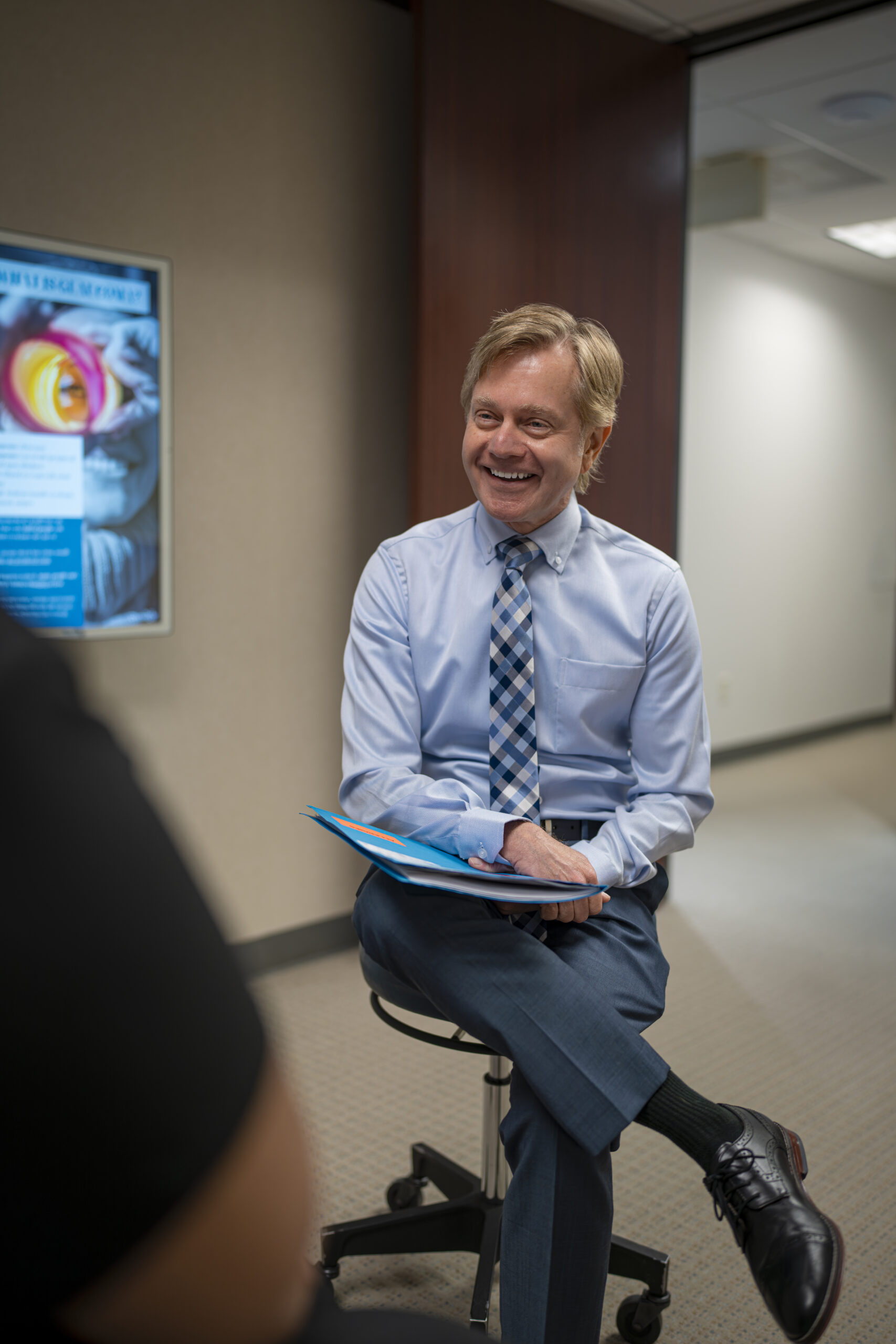
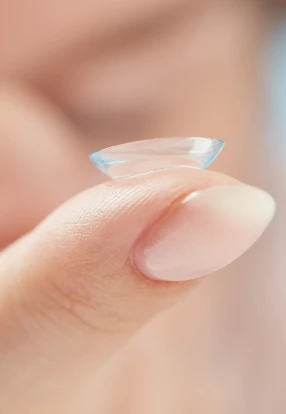
Preparing for LASIK
Once you know when you’ll have LASIK, you’ll need to stop wearing contact lenses in preparation. You may not realize it, but contact lenses temporarily change the shape of your eyes. You’ll need to stop wearing hard contact lenses at least four weeks before the procedure or as directed by your eye doctor. Soft lenses should be discontinued at least one week before your procedure. This time frame prevents contacts from interfering with the shape of your eye.

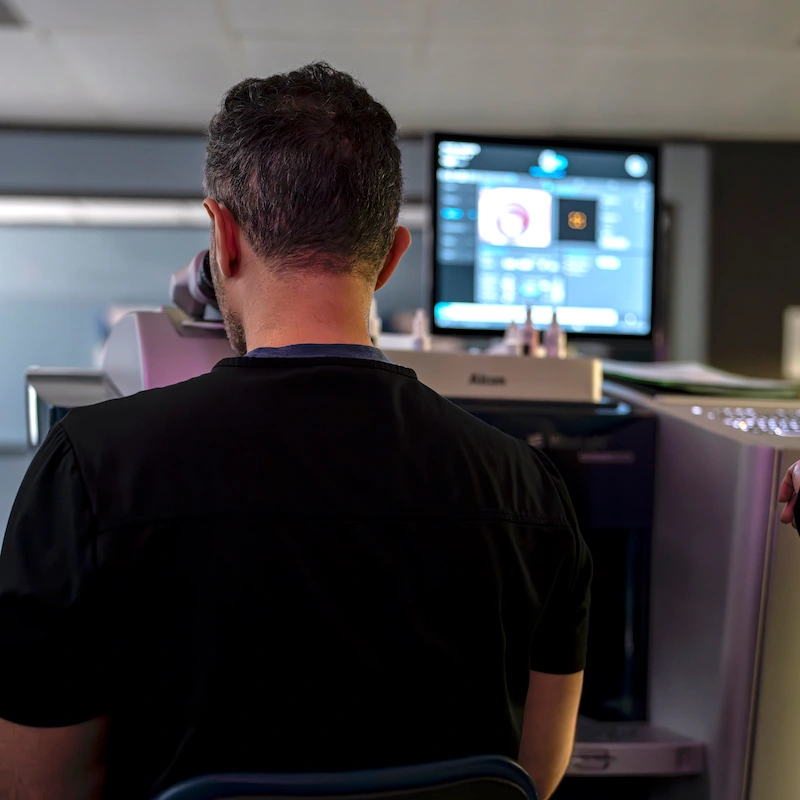
What Happens During LASIK?
Having LASIK takes about 10 minutes. Many patients are given a mild sedative like Valium to relax before surgery begins. You’ll then receive numbing eye drops to prevent you from feeling anything.
Your eye will be gently cleaned and then held open using a speculum. Your LASIK surgeon will then ready Diagnostic Eye Center’s state-of-the-art laser system, the WaveLight FS200 Femtosecond Laser, which creates the corneal flap, followed by the WaveLight EX500 Excimer Laser to perform the treatment.
Our experienced LASIK surgeons are committed to providing the very best technology to their patients and take pride in having the most advanced lasers available for LASIK. A computer directs the laser based on measurements taken during your LASIK consultation and final measurements from the day of your LASIK procedure.
After reshaping the cornea, there’s no need for a bandage or stitches, as the flap heals on its own. Your surgeon will recheck your eyes to ensure proper healing, and then you will spend about 30 minutes in our recovery room.
Your LASIK advisor will go over all postoperative instructions with you during this time. This is a perfect time to ask any questions you may have. Ensure that you have a friend or family member who can drive you home, as you won’t be able to drive.
Thanks to the numbing eye drops, you shouldn’t feel any pain during the procedure. However, you may experience some discomfort when you get home as the drops wear off.
This usually lasts for approximately four hours after the procedure. You will be given eye drops to help during this time, but the best thing to do is rest with your eyes closed.
The LASIK process




What Should I Expect While Recovering From LASIK?
One of the definite advantages of LASIK is the recovery is quite short. With that being said, you should take it easy for a few days after the procedure. Rest and close your eyes for the first several hours after LASIK. Keeping your eyes closed limits dry eyes and irritation from dust or other particles. You should be able to return to work after a day or two. Most patients find they can start getting back to many of their normal activities within a few days. Avoid contact sports for four weeks. Skip eye makeup for one week or until your eye doctor says it is okay to resume.
While healing, you may feel dry, itchy eyes or slight pain. You can take prescription eye drops and over-the-counter pain relievers as needed. To avoid infection, you should not submerge your eyes in water for a month. This means no swimming in any bodies of water like pools, hot tubs, lakes, streams, or rivers.
You’ll Need to Attend Follow-Up Appointments After LASIK
Expect to return to the eye doctor within one to two days for an eye exam and sight test. You’ll need to return for several follow-up appointments over the next few months to ensure your eyes are healing as they should. Your sight may take three to six months to stabilize after laser eye surgery. You might have light halos, starbursts, or glare while seeing in the dark. Most people find that they go away on their own.
LASIK Won’t Prevent Your Eyes From Aging
Although LASIK is permanent, it does not prevent your eyes from aging. That means you may still develop conditions like cataracts even after LASIK. You may also need reading glasses as your near vision deteriorates with age. This is called presbyopia. Regular eye exams can ensure you have the correct prescription for changing visual needs.
What Are The Benefits of Having LASIK?
After LASIK, most patients have
Trusted Source
What Is the LASIK Success Rate?
American Refractive Surgery Council
Go to Source
20/20 vision
or better! In the days after LASIK, your vision will only get better and better. Potential benefits of LASIK include:
- Overall Satisfaction: LASIK has an extremely high patient satisfaction rate—at
Trusted Source Modern laser in situ keratomileusis outcomes Sandoval HP, Donnenfeld ED, Kohnen T, Lindstrom RL, Potvin R, Tremblay DM, Solomon KD Go to Source 96% it is a higher rate of patient satisfaction than any other elective procedure.
- Visual Freedom: Most patients experience immediate results. You’ll love not worrying about breaking your eyeglasses or misplacing contacts if you’re active.
- Long-term Savings: You can skip paying several hundred dollars a year on contacts or glasses since you won’t need them anymore after having LASIK. Even if you need glasses for reading or driving, your sight should stabilize after this incredible procedure.
- Aesthetic Improvement: Many people like the way they look without glasses. It’s easier to see facial expressions when you no longer feel like you’re hiding behind a pair of frames.
- Ease at work: LASIK is beneficial for people who work in physical careers. Welders, contractors, and military members enjoy the freedom of no longer having glasses or contacts to interrupt their jobs.
- Convenience and safety: You will also appreciate not having to deal with glasses fogging up while wearing a mask in these current times. Getting rid of contacts is also more hygienic, as you won’t need to touch your face to put lenses in every day.

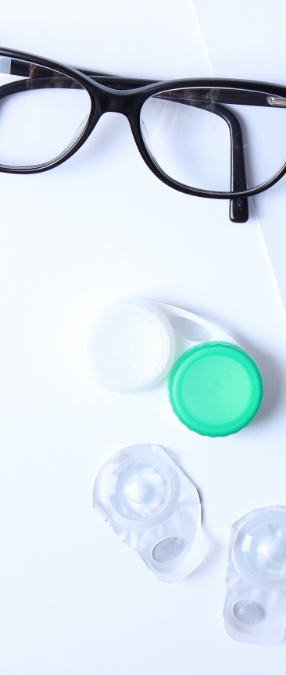
Please enter a valid value
LASIK Savings Calculator
Common Questions About LASIK Eye Surgery
At Diagnostic Eye Center, we want to make sure you have all of your questions answered before you choose to have LASIK. If you have a LASIK question that our website doesn’t answer, please feel free to ask your doctor during your consultation. Here are some of the most frequently asked questions about LASIK:
Most patients that have LASIK end up with
Trusted Source
What Is the LASIK Success Rate?
American Refractive Surgery Council
Go to Source
20/20 vision
or better. These results depend on the individual patient and how strong their prescription was before the procedure. At Diagnostic Eye Center, our LASIK surgeons use only the best technology available to ensure that our patients achieve optimal results. Your eye doctor will discuss the results to expect during your LASIK consultation.
At Diagnostic Eye Center, we believe that every patient should receive the same level of care. We charge one fee for all patients and do not choose the laser based on cost or your prescription. Our fee includes all pre-operative and postoperative care. There’s no reason why cost should hold you back from achieving the vision you want. Financing options are available through Alphaeon Credit to help make LASIK affordable for anyone. If you’re concerned about fitting LASIK into your budget, you can discuss financing and flexible payment options with your LASIK advisor during your consultation.
Although contacts can help you see better when you have refractive errors, they can temporarily change the shape of your eyes before you have LASIK. We must have the most accurate measurements of your eyes to ensure you can achieve the best results.You can still wear contacts when you come in for your LASIK consultation, but you’ll need to stop wearing them before having LASIK. For the best results, it’s recommended that you stop wearing soft contact lenses one week before LASIK. If you wear rigid gas permeable lenses or hard contacts, you’ll need to stop wearing them one month before LASIK. Bring all contact lens information to your consultation, as this is essential information for our eye doctors.
Every patient has a different experience when it comes to their visual recovery. Some may start noticing almost immediate visual improvement after LASIK, while others may have blurry vision that improves a day or two after the procedure. Your vision may be blurry at first, but it will get better as your eyes heal. Most patients see about as well as they did with glasses or contacts the next day. There’s a good chance you’ll feel comfortable enough to drive to your one-day follow-up appointment. Most patients also find that their vision improves enough to return to work the next day.
During your LASIK consultation, your Diagnostic Eye Center eye doctor will discuss which options are available and recommend which procedure will give you the best results. Other available options include Photorefractive Keratectomy (PRK), Implantable Collamer Lens (ICL), and Refractive Lens Exchange (RLE). For most patients, LASIK remains the best option.
Our philosophy is to provide the best customer service possible and the most advanced technology. Our surgeons are available to you throughout the entire process. We want to make sure you have all of your questions answered. Each patient is important to us, and we genuinely love changing people’s lives with LASIK. Our surgeons have not only performed over 20,000 procedures since 1998 but have even had the procedure themselves. Friends, family members, employees, and members of the Houston police and Houston fire departments have entrusted us with their eyes. Dr. Sanders, Dr. Salem, and Dr. Parra, along with the highly trained staff members of Diagnostic Eye Center, are here to guide you and will help you make an informed decision.
Because LASIK is a surgical procedure, there are still potential complications and
Trusted Source
LASIK — Laser Eye Surgery
American Academy of Ophthalmology
Go to Source
side effects
to consider. However, LASIK is a very safe and effective procedure. One of the best ways to reduce the risk of complications and side effects is to screen all potential candidates thoroughly. This is what makes your LASIK consultation at Diagnostic Eye Center so important! About 10-15% of LASIK candidates will not qualify for the procedure. If this is the case, your eye doctor will go over other alternative procedures you may be a fit for instead, like PRK, ICL, or Refractive Lens Exchange. The most common side effect after LASIK is patients may experience some dryness. Most dryness usually resolves itself after a few months. If you have dry eye syndrome, you can have it treated before having LASIK to reduce this side effect.
Dr. Salem Answers LASIK Questions
Does LASIK eye surgery hurt?
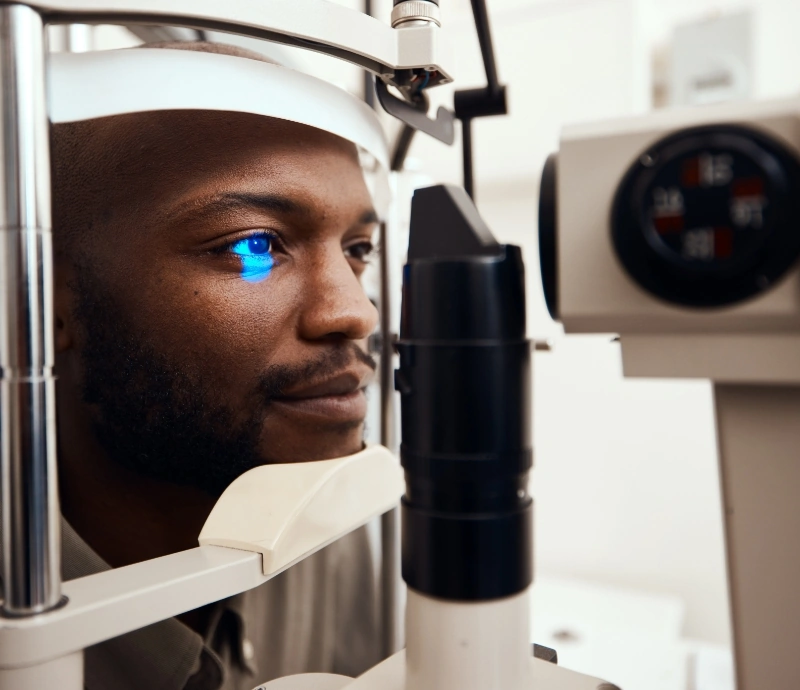
Other Refractive Procedures
Although LASIK is the most common refractive procedure used to correct visual errors, it is not unusual for a patent to be a better candidate for a different vision correction procedure. These procedures include vision correction treatments such as Photorefractive Keratectomy (PRK), Implantable Collamer Lens (ICL), or Refractive Lens Exchange (RLE).
During your LASIK consultation, you will meet with one of our eye doctors to discuss your individual needs and which procedure is best suited for your eyes and vision.
1 American Refractive Surgery Council. What Is the LASIK Success Rate? Available: https://americanrefractivesurgerycouncil.org/laser-eye-surgery-lasik-success-rate/
2 Sandoval HP, Donnenfeld ED, Kohnen T, Lindstrom RL, Potvin R, Tremblay DM, Solomon KD. Modern laser in situ keratomileusis outcomes. J Cataract Refract Surg. 2016 Aug;42(8):1224-34. doi: 10.1016/j.jcrs.2016.07.012. PMID: 27531300.
3 American Academy of Ophthalmology. LASIK — Laser Eye Surgery. Available at: https://www.aao.org/eye-health/treatments/lasik Accessed September 12, 2022
The doctors at Diagnostic Eye Center have reviewed and approved this content.


